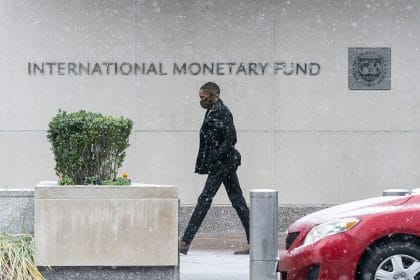The IMF has recommended that countries implement Financial Action Task Force standards to mitigate the crypto-specific risks.
Russia is currently the most sanctioned country in the world after embarking on a military operation in Ukraine. The European Union, Japan, the US, and others have imposed more than 400 sanctions focusing on oil and gas, banks, military goods, etc making it difficult for the country to survive economically. However, the International Monetary Fund (IMF) in a report focusing on global financial stability has raised concerns about the possibility of Russia circumventing these sanctions using crypto mining.
The IMF admits that the crypto industry has improved so much that many tools can be used to move money outside the involvement of the traditional financial systems. According to the IMF, anonymity enhancement platforms such as DEX or mixers in addition to non-compliant crypto exchanges can be a huge benefit to the Russian government to move around the impact of the sanctions. In addition, privacy cryptos such as Monero can weaken these restrictions by covering up transactions making them difficult to trace.
The report further mentions the possibility of the Russian government resorting to crypto mining to monetize resources that cannot be exported. This is much evident in the case of Iran, Venezuela, North Korea, and Russia. These countries have Bitcoin mining facilities and active crypto communities despite the imposition of sanctions on them.
“Over time, sanctioned countries could also allocate more resources toward evading sanctions through mining. Mining for energy-intensive blockchains like Bitcoin can allow countries to monetize energy resources, some of which cannot be exported due to sanctions,” according to the report.
The report further states that the activities in these countries are contained, but has a huge potential to grow in the future.
“At this point, the share of mining in countries under sanctions and the overall size of mining revenues suggests that the magnitude of such flows is relatively contained, although risks to financial integrity remain,” according to the report.
At the beginning of the year, the Russian Central Bank hinted that it would introduce a law that will kick against crypto mining due to its negative impact on the environment. However, it has been reported that the Russian president Vladimir Putin is on the verge of changing his mind after he said Russia could have a major advantage in crypto mining.
The IMF has, therefore, recommended that countries implement Financial Action Task Force standards to mitigate the crypto-specific risks. This includes travel rules for digital assets that expect crypto exchanges to transmit sender and recipient identification information.
“Authorities should also encourage Defi platforms to be subject to robust governance schemes, including industry codes and self-regulatory organizations. These entities could provide an effective conduit for regulatory oversight,” said the report.
next